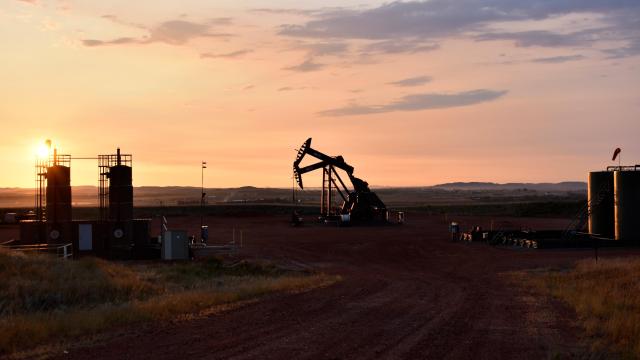New research that used machine learning tools to identify climate trends says that a critical global warming threshold could be closer than we think. The study, published this week in the Proceedings of the National Academy of Science, used artificial neural networks trained on climate model output to predict the time until critical global warming thresholds are reached, and found that the Earth will be 1.5 degrees Celsius warmer in a little over a decade, and 2 degrees Celsius warmer before the end of this century.
The United Nations Paris Agreement, a critical international treaty on climate change, aims to limit the rise in mean global temperature to 1.5 degrees Celsius.
“We started out specifically interested in that global warming threshold. Because of the UN Paris Agreement, and there’s been a lot of discussion and research about how many years until we reach 1.5,” said Stanford University climate scientist Noah Diffenbaugh, who co-authored the study with Colorado State professor Elizabeth Barnes.
Diffenbaugh and Barnes trained their AI model on the same large database of climate model simulations that organisations like the Intergovernmental Panel on Climate Change (IPCC) use. The AI analysed historical temperature observations from around the world to look at low, medium, and high greenhouse gas emissions scenarios: It concluded that in all three of these scenarios, the planet would reach 1.5 degrees of warming between 2033 and 2035.
The AI also found that even in a low emissions scenario, the planet could reach 2 degrees of warming by 2054.
“The IPCC concludes that it’s unlikely that global warming will reach two degrees in the scenario [where] net zero is reached in the next half century,” Diffenbaugh said. “AI, in that same scenario, predicts a higher probability of reaching two degrees C. So we’re not arguing that the AI is right and the IPCC is wrong, but that’s the biggest area of discrepancy between the AI predictions and what’s been in literature.”
Less than half of a degree Celsius may not seem like much, but rising global temperatures have huge consequences. Since the late 1800s, the planet’s average temperature has gone up by about 1.1 degrees Celsius, according to NASA. A lot of that warming has occurred since the late 20th century. We’ve seen signs of this over time, especially as the world has experienced an increase in extreme-weather related disasters in the last half century, according to the World Health Organisation. Regularly occurring weather patterns, like hurricanes, are going to drop more rain due to climate change. This means more flooding, and more infrastructural damage for vulnerable communities. Reaching 2 degrees Celsius of global warming would destroy critical habits — for example we’d loose most of the coral reefs around the world.
Diffenbaugh said that though the quicker warming scenario calculations are alarming, he thinks there’s ambition from governments and agencies to avoid reaching 2 degrees Celsius of warming. He credited the Paris Agreement for pushing more policies for quicker emissions reduction.
“If you look at the IPCC report from 2014 — I was one of many authors on that — in that report, the future in the 21st century was a four degree world of business as usual compared to a two degree world [where] there was policy action,” he said. “ Given the policy commitments that have been made in the last decade, the trajectory is much less warming than it was before the Paris Agreement.”
